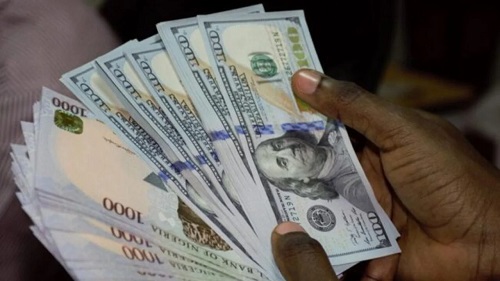Nigeria’s currency, the Naira, has depreciated further, slipping past the psychologically important threshold of 1,280 Naira to the US dollar at both the official Investors and Exporters (I&E) window and the parallel market. This devaluation adds to the nation’s mounting economic woes and fuels anxieties among citizens.
Exchange Rate Pressures Mount
The official I&E window, where businesses and authorized individuals conduct transactions, saw the Naira exchange for around 1,281 Naira to the dollar on Tuesday, April 2nd. This represents a slight depreciation from the previous day’s closing rate of 1,278. The black market, a less regulated avenue for currency exchange, witnessed a steeper decline, with the Naira reportedly trading as low as 1,285 to the dollar.
The reasons behind the Naira’s depreciation are complex and multifaceted. Global oil prices, a major source of revenue for Nigeria, have exhibited some volatility in recent weeks. Additionally, capital flight, the outflow of foreign investment, has placed pressure on the Naira’s value. Furthermore, concerns about domestic inflation and the Central Bank of Nigeria’s (CBN) monetary policy are also contributing factors.
Impact on Businesses and Consumers
The Naira’s devaluation has a ripple effect across the Nigerian economy. Businesses that rely on imported goods face rising costs, potentially leading to price hikes for consumers. Manufacturers who depend on dollar-denominated raw materials may also experience production slowdowns. Forex scarcity further complicates the situation, making it challenging for legitimate businesses to access dollars through official channels.
Government Intervention and Future Outlook
The CBN has implemented various measures to stabilize the Naira, including currency rationing and interest rate adjustments. However, the effectiveness of these interventions remains a topic of debate among economists. The government may also consider policies to attract foreign investment and boost domestic production to strengthen the Naira in the long term.
The coming weeks and months will be crucial for determining the Naira’s future trajectory. The CBN’s actions, global oil prices, and investor confidence will all play a role in shaping the currency’s value.



